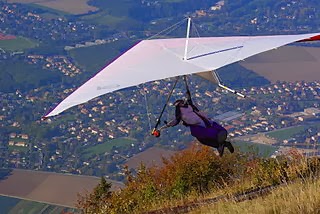As you may recall from earlier posts here, I enjoy the time I have in the summer to read widely and haphazardly. By way of disclaimer I do recommend all the books below. I no-longer bother to finish books that I haven't managed to engage with by 50-70 pages in no matter how well-recommended by my friends.
This summer my picks included
South of Superior by
Ellen Airgood. I picked up Airgood's book at one of my favorite independent bookseller's
Mclean and Eakin in Petoskey, Michigan where I vacation with my family. Wherever I travel I try and read based on where I am located. Airgood's book set in the Upper Peninsula didn't disappoint me for thoughtful summer reading well tied to its/my location. And interestingly, it fit in well with one of the unexpected themes from the books I read-- finding solutions/building our lives by looking outside our hidden assumptions. The other fiction books included
Barbara Kingsolver's
Flight Plan, Louise Erdich's Round House, and Patrick Rothfuss'
What the Wise Man Fears. Kingsolver is a master of setting, especially in her books set in Appalachia. The main character Dellarobia, like the butterflies she loves is transformed and by the end of the novel well on her way to her own metamorphosis -- all because she was saw wonder in her own backyard. By the way I especially loved the scene in which the northern eco-warrior shows up with the top ten things to save the planet and she makes short work of his list as impossible for her family or anyone in their economic place. This summer I returned to poets I already loved taking Mary Oliver's
Why I Wake Early and Seamus Heaney with me on vacation. For my soul I worked through the
Book of Romans and the corresponding chapter in
The Women's Bible Commentary. I also read Henri Nouwen's
Reaching Out: The Three Movements of the Spiritual Life. For my non-fiction choices I started with Mary Cowhey's
Black Ants and Buddhists and have begun but yet to finish Doris Kerns Goodwin's biography of Lyndon Baines Johnson ( this president was featured very colorfully in the movie
The Butler) moved to Cathy Johnson's
Now You See It: How Technology and Brain Science will Transform Schools and Business for the 21st century and finished with Roz and Ben Zander's
the Art of Possibility. While I read
Now You See it my son sat on the couch across from me reading
The Shallows: What the Internet is Doing to Our Brain by
Nicholas Carr. We had a great time comparing notes and eye catching titles aside we found many things in common.

So what does the French philosopher
Francois Marie Charles Fourier have to do with my summer reading? Whenever I have taught World History I tend to keep my students thinking and working at a 10,000-20,000 foot level focused on human interactions with the natural world and with other human populations. However, we do a couple of dives into more detailed looks at human ideas.
One of them explores the trajectory from Jean Jacques Rousseau to Karl Marx. Fourier is one of the steps along the way. For those of you who aren't familiar Fourier is best remembered for his ideas on how to create harmonious, cooperative societies and for his thinking on feminism and human love. For him the greatest harm to the human psyche was separating our passion from our productive work. In his utopias people would choose what work they wanted to do that the society needed or wanted accomplished. One of his ideas that my students always enjoyed was the idea that because little boys like getting dirty they would be natural rag and trash pickers. Fourier recognized that for this society to work you needed a sufficiently diverse population to insure that all of the jobs got done. For him that number was 1620 individuals. As I read Cathy Davidson's discussion of the genius of Wikipedia and its truly democratic nature, I was struck by Wikipedia and other wikis and moocs as proof that Fourier was correct. Wikipedia thrives on the way it connects individual passions for any topic imaginable, to other people's love of editing, with those who want to improve the functionality or take on any number of the other hundreds of tasks needing doing and getting done through the
Community Portal. All of this happens because people choose to engage. Twenty first century technology created the scale necessary for Fourier's ideas on harmony, collaboration and mutuality to thrive.























